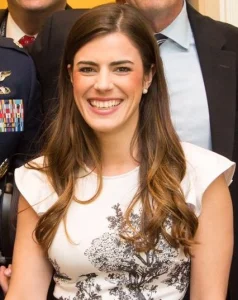
Previously published at WGBHNews.org.
Have the media engaged in false equivalence when it comes to political lying? Do fact-checkers nitpick statements by Democrats in order to seem fair and balanced when they go after President Trump’s numerous and blatant falsehoods?
That proposition might seem ludicrous. After all, The Washington Post last month announced that Trump had made more than 12,000 false or misleading statements since his inauguration in 2017. Daniel Dale of CNN tracks every Trumpian falsehood — writing, for example, that the president “made at least 26 false claims” at a rally in New Mexico on Monday. PolitiFact has rated fully 69 percent of Trump’s public utterances as false to some degree, and 14 percent as being so at odds with reality that they have earned the coveted “Pants on Fire” rating.
And that’s just the tip of the journalistic iceberg. Indeed, if the media have told us anything about Trump over these past few years, it’s that he spews lies so freely that his every word and every tweet is suspect. So what do Democrats have to complain about?
This: Despite the media’s admirably tough-minded stance on Trump’s falsehoods, they are nevertheless holding Democrats to a much higher standard. Most politicians exaggerate, butcher the facts or shade the truth, and journalists should take note when they do. But the press should also be careful to point out the difference between standard-issue rhetorical excesses and the sort of gaslighting that Trump engages in on a daily basis.
Last week Michael Calderone of Politico wrote an important story about Democratic complaints regarding the fact-checkers’ embrace of false equivalence. He began with the example of Bernie Sanders’ claim that “500,000 Americans will go bankrupt this year from medical bills.” The Washington Post’s Fact Checker column awarded three Pinocchios (out of a possible four) to Sanders — not because he was completely wrong, but because medical bills were only one factor in those 500,000 bankruptcies. Meanwhile, Calderone noted, the Post also gave Trump three Pinocchios for claiming that large swaths of his border wall have been already built when, in fact, none of it has.
The Sanders example is a matter of factual interpretation. The Trump example is somewhere between a hallucination and a lie. Yet they each got the same rating. How can this be?
One explanation is that journalism, steeped as it is in notions of fairness and balance, is unequipped for the extraordinary challenge of the Trump era. Calderone offered several other instances of Democrats’ words being parsed for shades of nuance so that they could be labeled as lies. He also wrote that “several prominent fact checkers said they don’t believe their job has changed when it comes to holding politicians accountable for their words on the stump and in TV studios, despite Trump’s persistence falsehoods.” And he quoted PolitiFact editor Angie Drobnic Holan as saying, “Two wrongs don’t make a right.” OK. But everything is not the same.
Consider an example that Calderone didn’t cite: Joe Biden’s recent mixing up of three separate stories about honoring a heroic soldier who had tried to save a comrade in Afghanistan. Yes, Biden botched it pretty badly, but the essential truth of what he was trying to say came through. Yet The Washington Post headlined it, “As he campaigns for president, Joe Biden tells a moving but false war story.” False? Not really. More like Biden being Biden, lacking the discipline to master the details and not understanding why it matters.
Or how about two years of obsessing over Hillary Clinton’s private email server while the news that Trump uses an unsecured cell phone, reported last October in The New York Times, got about two minutes’ worth of attention — even though Chinese and Russian spies were reportedly listening in on Trump’s calls.
Those last examples aren’t about lies and fact-checking. But all of this is grounded in a larger, more enduring issue — accusations of liberal bias on the part of conservatives, and the duck-and-cover response from too many journalists whose politics may indeed be liberal but who bend over backwards to torment liberal politicians. Eric Alterman, in his 2003 book, “What Liberal Media?,” called it “working the refs,” and it goes back at least to Spiro Agnew’s famous nattering nabobs of negativism speech of 1970.
In 2012 — a more innocent time — I wrote in The Huffington Post that one of the big problems with fact-checking was that politicians’ false or partly false statements were rarely full-blown lies, but that ratings like Pinocchios or “Pants on Fire” suggested that every falsehood was a lie. “The fact-checkers are shifting from judging facts to indulging in opinion, but they’re not necessarily doing it because they want to,” I wrote. “They’re doing it because politicians don’t flat-out lie as frequently as we might suppose.” Now we have a president who lies so promiscuously that the fact-checkers seek out minor factual discrepancies among Democrats so it won’t seem like they’re picking on Trump.
In a report for Harvard’s Shorenstein Center, Thomas Patterson found that press coverage of Hillary Clinton in the 2016 campaign was actually more negative than that of Trump. In other words, her emails were treated the same as or worse than her opponent’s racist outbursts, the “Access Hollywood” tape, corruption at the Trump Foundation and so much more.
“Indiscriminate criticism has the effect of blurring important distinctions,” Patterson wrote. “Were the allegations surrounding Clinton of the same order of magnitude as those surrounding Trump? It’s a question that journalists made no serious effort to answer during the 2016 campaign. They reported all the ugly stuff they could find, and left it to the voters to decide what to make of it.”
Now we are moving into yet another presidential election season. The problem for 2020, as it was for 2016, isn’t that the media won’t report negative information about Trump. It’s that they will report negative information about his opponents in such a way that it all looks the same. In that respect, Democratic complaints about fact-checking that may seem trivial are actually emblematic of a much deeper problem with journalism: the primal urge to treat both sides equally, to be seen as fair, to avoid accusations of liberal bias.
It’s going to be an ugly, brutal campaign, and Trump’s going to drive the agenda once again. Are the media up to the challenge? The evidence suggests that the answer to that question is no.
Talk about this post on Facebook.






